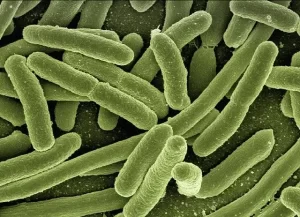The COVID-19 oral drug is really coming: UK has approved it.
- Did Cloud Seeding Unleash a Deluge in Dubai?
- Scientists Identify Gut Bacteria and Metabolites that Lower Diabetes Risk
- OpenAI’s Model Matches Doctors in Assessing Eye Conditions
- UK: A Smoke-Free Generation by Banning Sales to Those Born After 2009
- Deadly Mutation: A New Monkeypox Variant Emerges in the DRC
- EPA Announces First-Ever Regulation for “Forever Chemicals” in Drinking Water
The COVID-19 oral drug is really coming: UK has approved it.
- Red Yeast Rice Scare Grips Japan: Over 114 Hospitalized and 5 Deaths
- Long COVID Brain Fog: Blood-Brain Barrier Damage and Persistent Inflammation
- FDA has mandated a top-level black box warning for all marketed CAR-T therapies
- Can people with high blood pressure eat peanuts?
- What is the difference between dopamine and dobutamine?
- How long can the patient live after heart stent surgery?
The COVID-19 oral drug is really coming: UK has approved it.
The United Kingdom on Thursday (November 4) granted a conditional authorization to Merck’s antiviral oral drug, the first oral drug to successfully treat the COVID-19 so far. This makes the UK the first country to approve this COVID-19 oral drug. But it is unclear how long the drug will be on the market.
The drug is authorized for use in adults 18 years and older, provided that they test positive for the new coronavirus and have at least one factor that develops a risk of severe illness, such as obesity or heart disease. Patients with mild to moderate COVID-19 will take 4 tablets of this medicine called Molnupiravir twice a day for 5 days.
This oral antiviral drug that can alleviate illness and accelerate recovery has proven to be a breakthrough. It can reduce the workload of hospitals and help contain disease outbreaks in poorer countries with fragile health systems. It can also strengthen the two-pronged approach to the COVID-19 epidemic: through drug treatment and vaccination.
Monupivir is also awaiting review by regulatory agencies in the United States, the European Union and other regions. The US Food and Drug Administration announced last month that it will convene an independent panel of experts in late November to review the safety and effectiveness of the drug.
The initial supply will be limited. Merck said it can produce 10 million treatment courses by the end of this year, but most of the supply has already been purchased by governments around the world.
In October, British officials announced that they had received 480,000 courses of monupivir, and it is expected that thousands of Britons will receive this treatment through a nationwide study this winter.
“Today is a historic day for our country, because the UK is now the first country in the world to approve the use of anti-coronavirus drugs at home,” said British Health Minister Sajid Javid.
He said in a statement: “We are accelerating work in various government departments and the national medical service system to develop a plan to distribute monupivir to patients through a nationwide study as soon as possible.” The doctors said this treatment Methods are especially important for those who do not respond well to vaccination.
Merck and its partner Ridgeback Biotherapeutic have applied for a license for the drug from regulatory agencies around the world for the treatment of adults in the early stages of the COVID-19, who may develop severe illness or hospitalization. This is roughly the same as the target group for infusion of COVID-19 antibody drug therapy. In many countries, infusion of COVID-19 antibody drugs is the standard treatment for patients who do not yet need hospitalization.
Merck’s preliminary results announced in September showed that its drug cut the number of hospitalizations and deaths of patients with early COVID-19 symptoms by half. These results have not been peer-reviewed or published in scientific journals.
The company also did not disclose details of the side effects of monupivir.
Monupivir is an enzyme used for self-reproduction in response to coronaviruses, inserting errors in the genetic code of the new coronavirus, thereby slowing down its ability to spread and take over human cells. This gene activity has led some independent experts to question whether the drug might cause mutations, which could lead to birth defects or tumors.
The Medicines and Health Products Administration of the United Kingdom stated that the ability of monupivir to interact with DNA and cause mutations has been “extensively” studied, and it has not been found to pose a risk to humans.
The agency said in an email: “Research on rats has shown that (monupivir) may have harmful effects on unborn offspring, although these effects are at higher doses than would be given to humans. It has not been observed in other animals.”
In the company’s trial, both men and women were required to take contraceptive measures. Pregnant women were excluded from the study. Merck said the drug is safe when used as prescribed.
Monupivir was initially studied as a potential flu treatment with funding from the US government. Last year, researchers at Emory University decided to reuse the drug for COVID-19 treatment, and then licensed it to Merck and partner Ridgeback Biotherapeutic.
Last week, Merck agreed to allow other drugmakers to produce its COVID-19 oral medicine, a move designed to help people in poorer countries get the medicine. The United Nations-backed Pharmaceutical Patent Alliance stated that as long as the World Health Organization considers the COVID-19 epidemic to be a global emergency, Merck will not receive royalties under the agreement.
But the agreement has been criticized by some groups because it excludes many middle-income countries, including Brazil and China.
However, experts praised Merck for agreeing to widely share its formulations and promised to help any company that needs technical assistance to manufacture its drugs, which had not been agreed by the new coronavirus vaccine manufacturer before.
Dr. Mohga Kamal-Yanni, Senior Health Advisor of the People’s Vaccine Alliance, said: “Unlike the strange phenomenon of inequality in the distribution of COVID-19 vaccines, the poorest countries will not necessarily be ranked The queue is waiting for monupivir. “Only less than 1% of the COVID-19 vaccine in the world goes to poor countries. Experts hope that easier-to-achieve treatments can help them contain the COVID-19 epidemic.”
Merck previously announced that it has reached a licensing agreement with several Indian generic drug manufacturers to produce lower-cost monupivir for developing countries.
The United States has agreed to pay approximately $7 million for approximately 1.7 million courses of medication. Merck said it plans to adopt a tiered pricing strategy for developing countries. A review by Harvard University and King’s College London estimated that the cost of a course of 40 capsules of monupivir is about $18.
Although other treatments have been approved for the treatment of COVID-19, including steroids and monoclonal antibodies, these are all carried out by injection or infusion, mostly in hospitals and other medical institutions.
The COVID-19 oral drug is really coming: UK has approved it.
(source:internet, reference only)
Disclaimer of medicaltrend.org
Important Note: The information provided is for informational purposes only and should not be considered as medical advice.



